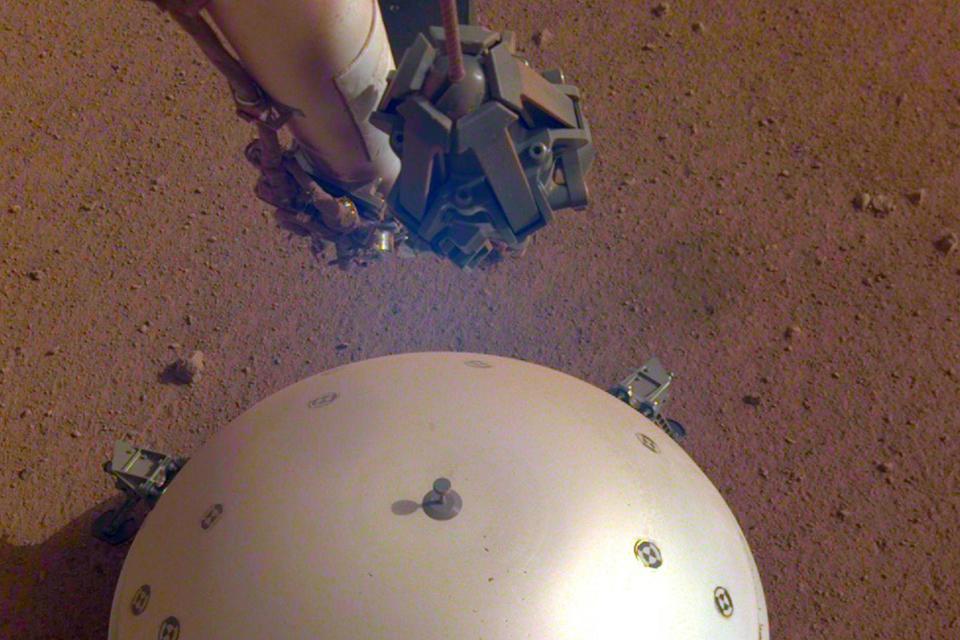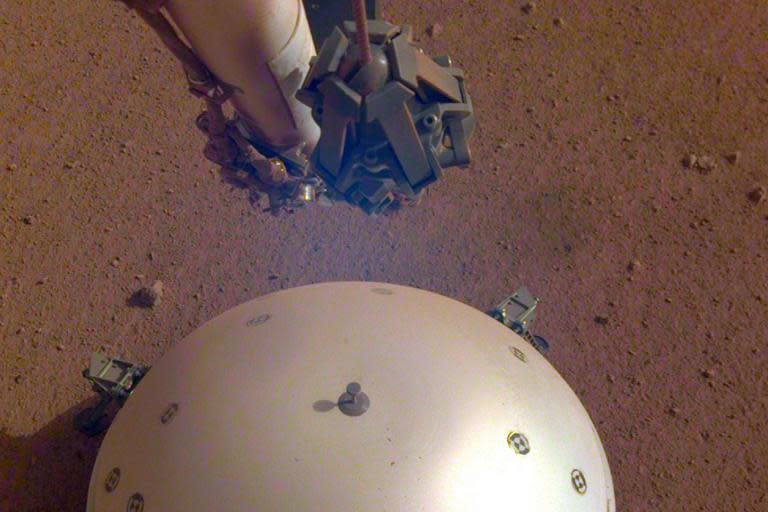Nasa InSight probe detects 'first ever marsquake' from red planet
The first ever “marsquake” has been detected marking the first time a seismological tremor has been recorded on another planet, scientists believe.
Nasa’s robotic InSight probe recorded a faint rumble on April 6, nearly five months after it touched down on the surface of Mars.
The so-called marsquake was detected by the spacecraft’s seismometer, an instrument sensitive enough to measure a seismic wave just one-half the radius of a hydrogen atom.
"We've been collecting background noise up until now, but this first event officially kicks off a new field: Martian seismology," InSight principal investigator Bruce Banerdt said in a news release.
Scientists are still examining the data to conclusively determine the precise cause of the signal but the trembling appeared to have originated from inside the planet.
"The high frequency level and broad band is very similar to what we get from a rupture process. So we are very confident that this is a marsquake," Philippe Lognonne, a geophysics and planetary science professor at University Paris Diderot in France and lead researcher for InSight's seismometer, said.
Still, a tremor so faint in Southern California would be virtually lost among the dozens of small seismic crackles that occur there every day.
"Our informed guesswork is that this a very small event that’s relatively close, maybe from 50 to 100 kilometres away" from the lander, InSight principal investigator Bruce Banerdt said.
A more distant quake would yield greater information about Mars' interior because seismic waves would "penetrate deeper into the planet before they come back up to the seismometer," he said.
Agencies contributed to this report

 Yahoo News
Yahoo News 

